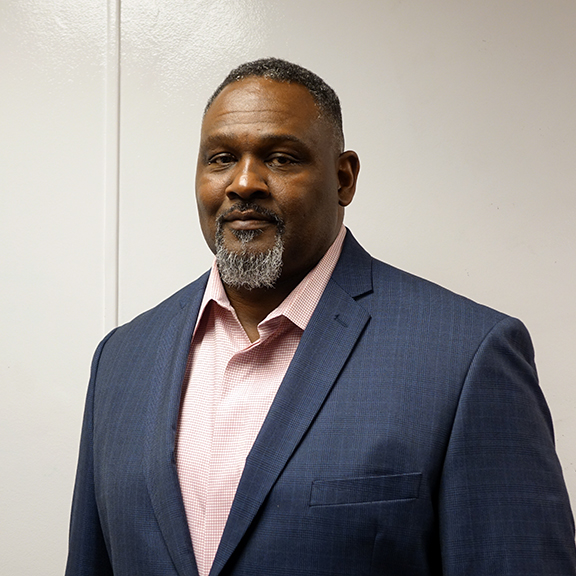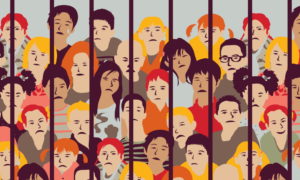 Today’s youth have a lot to say, and they know more than we give them credit for, I have found. Youth have more influence over their peers’ attitude and behavior than the adults who surround them.
Today’s youth have a lot to say, and they know more than we give them credit for, I have found. Youth have more influence over their peers’ attitude and behavior than the adults who surround them.
Today’s youth want to be socially just and want their community and the world to be reflective of this concept. This is hard for them when society has labeled the younger generation (Generation Z) lost or entitled. When we talk about society, we are talking about the generation that is currently in power, the baby boomers. So how do we shift the paradigm? How do we empower the students to be the change agents in their schools?
Our programs in the Atlanta public schools center on empowering students through engagement. I partnered with Debra Tavaras, founder and executive director of Soulstice Inc., to create a program called Peer Leadership Council. The mission of Soulstice is to provide programs that are based on the 5 Cs of positive youth development: competence, connections, character, confidence and contributions.
The Peer Leadership Council empowers students to be positive change agents in their schools and creates an atmosphere where we recontextualize peer pressure to achieve positive results. While baby boomers and Generation X may be reluctant to accept it, peer pressure is a real issue. We train our youth in active listening, to accept and believe in themselves, to ask open-ended questions in order to create dialogue, to solve challenges from the root and to work to put solutions in place to build character in their peers.
Schools rely on suspension and expulsion to address minor disciplinary issues. Suspending students neither holds them accountable nor addresses the underlying issues that lead to suspension. Studies show that adolescence is an extremely difficult time for youth. The transition from childhood to adulthood is when adolescents feel the most vulnerable and misunderstood. These feelings can often result in rebellious behavior, poor school performance, bullying and disrespect for authority. The participants in the Peer Leaders Council collaborate with their peers to develop creative solutions to behavioral issues and create an atmosphere of positive peer pressure that helps to lessen the need for suspensions and expulsions.
Here’s one real-life example: The eighth grade team met with a young man who was referred to the peer leaders for classroom disruption in math class. The team introduced themselves, stated the program’s mission and asked him what happened to cause him to be in front of them today.
This was his opportunity to exercise his voice by explaining what happened. After listening to his version, the team then took turns asking their peer questions. One peer leader asked about his plans for the future. He said he wanted to own his own business. Another peer leader asked what type of education and character it takes to own your own business. This made the student stop and connect and reflect.
Strategically, one of the members asked how he was doing in math class. He said he was having trouble. Then a peer leader asked where he sits in class. He said the front; a team member in the same class corrected him, saying you sit in the back and play around. He was surprised by the statement yet agreed because this was from a peer and not an adult.
After they finished asking questions, the agreement was made that the student was to verbally apologize to the class and to the instructor, sit in the front of the class and attend tutorial for math. One of the female peer leaders said, “We would like to add one more sanction: We want you to write a letter to yourself. We want you to write about all the good qualities that you have.”
He agreed but looked surprised. “You must believe in yourself before anyone will believe in you,” the peer leader said. “We believe in you and we will be checking on you.”
His attitude totally changed. He completed all the sanctions. His math grade improved and he started to take on more responsibility and initiative in the school.
The Peer Leadership Council works on making inner changes: The students commit to start within themselves or to “be the change we want to see in the world” as Mahatma Gandhi called for.
Through the program, students begin a lifelong process in learning about being responsible for one’s actions and developing a sense of humility.
The base of our method and philosophy comes from the Latin meaning of education. There are two different Latin roots of the English word “education.” One is “educare,” which means to train or to mold, the other is “educere,” which means to lead out. We would like to focus on a combined meaning of these words, which would be bringing out the great qualities within each person.
We do this through continuous training, focused on the following concepts: active listening, self-acceptance, self-efficacy, creating dialogue, finding the underlying cause of issues and collaborative problem solving. We believe these qualities will bring out the unique leadership style each student possesses and make a positive change within them. This will lead them to make positive changes in their community.
We use a backwards design model, where we start with the desired goals and create the teaching methods needed to equip the students to reach their goals. We start by talking with the students about their civic and social interests and aspirations. We build our communication strategies on those interests and aspirations to help them achieve their goals based on the student’s own feedback and contributions.
Each interaction with the students is different yet does not interfere with the other students because each individual interaction aligns with the student’s personal goals. Treating students as individuals and showing them how they are a part of a community helps bring about a change in the student. We then teach the students to use this method when interacting with their peers.
The key is to focus on the goals they set for themselves. The change comes from within and not from a person of authority, which we know may lead to rebellion and disruptive behavior. Our students have a place to practice their leadership qualities in a real-world scenario.
Bevin Carpenter serves as the community partnership/program manager with Emory University’s Graduation Generation and a senior director of Emory Center for Advancing Nonviolence. He has worked with urban students for 20-plus years to help increase the graduation rate and decrease the dropout rate.































